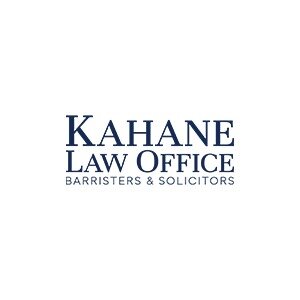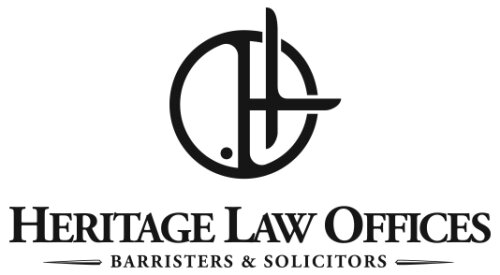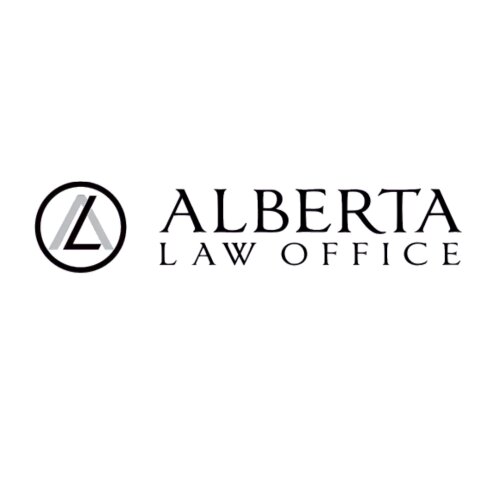Best Child Visitation Lawyers in Edmonton
Share your needs with us, get contacted by law firms.
Free. Takes 2 min.
Free Guide to Hiring a Family Lawyer
List of the best lawyers in Edmonton, Canada
About Child Visitation Law in Edmonton, Canada:
In Edmonton, Canada, child visitation law primarily focuses on the rights of non-custodial parents to have access to their children. A court usually determines these rights based on the best interests of the child. Factors such as the child's age, the parent's behavior, and the quality of the relationship between the parent and child are all considered. However, the right to access does not equate to the right to make decisions regarding the child's education, religion, or medical treatment - those generally rest with the custodial parent or guardian.
Why You May Need a Lawyer:
Many scenarios warrant legal help in matters of Child Visitation. If you are a non-custodial parent seeking to be part of your child’s life or a custodial parent trying to protect your child from an abusive ex-partner, you may need a lawyer. Disputes over visitation schedules, modifications to existing agreements, and enforcement of visitation rights are other common situations where legal assistance can be invaluable. Also, when dealing with complex legal language and court procedures, the expertise of a lawyer can make a significant difference to the outcome.
Local Laws Overview:
In Edmonton, local laws regarding Child Visitation primarily hinge on Alberta’s Family Law Act. This law emphasizes the child’s best interests, particularly their physical, psychological, and emotional safety. Access to a non-custodial parent is seen as a child’s right, not a parent’s right, unless proven detrimental for the child. Court orders for visitation can include specifics like visitation times, places, conditions, and procedures for hand-over. The law also recognizes grandparents' access rights, provided it's in the child’s best interests.
Frequently Asked Questions:
1. Can a custodial parent deny visitation if the non-custodial parent fails to pay child support?
No, child support and visitation are considered separate issues under Edmonton's Family Law Act. A custodial parent cannot deny visitation rights due to unpaid child support. Instead, enforcement for child support can be sought through legal avenues.
2. What if the non-custodial parent poses a risk to the child?
If there's a legitimate concern for the child's safety, the custodial parent can seek a court order to limit or supervise visitation. Proper evidence of the risk would be required.
3. Can the child decide whom he/she wants to live with?
While a child’s preference can be considered, it is not the only factor. The court considers multiple factors when deciding custody and visitation, always prioritizing the child’s best interests.
4. Can visitation rights be changed?
Yes, visitation rights can be modified if circumstances have changed substantially and modification will serve the child's best interests. Legal assistance will be needed to alter the court order.
5. What happens if a parent violates visitation orders?
A breach of visitation orders can be serious. The court has several options in such cases, from enforcing the order, altering visitation rights, to even altering custody arrangements in extreme circumstances.
Additional Resources:
You can get information from local Edmonton courthouses, legal aid societies, or family justice services. Family Law Information Centres (FLICs) are also resources available to the public providing information on family law issues. A lawyer experienced in family law is also a valuable resource.
Next Steps:
If you require legal assistance regarding Child Visitation, start by contacting a lawyer with expertise in Family Law. Be sure to fully understand your rights, responsibilities, and options explained by your lawyer. Be prepared to provide relevant documents and accurately describe your situation, which will enable your lawyer to assist you better.
Lawzana helps you find the best lawyers and law firms in Edmonton through a curated and pre-screened list of qualified legal professionals. Our platform offers rankings and detailed profiles of attorneys and law firms, allowing you to compare based on practice areas, including Child Visitation, experience, and client feedback.
Each profile includes a description of the firm's areas of practice, client reviews, team members and partners, year of establishment, spoken languages, office locations, contact information, social media presence, and any published articles or resources. Most firms on our platform speak English and are experienced in both local and international legal matters.
Get a quote from top-rated law firms in Edmonton, Canada — quickly, securely, and without unnecessary hassle.
Disclaimer:
The information provided on this page is for general informational purposes only and does not constitute legal advice. While we strive to ensure the accuracy and relevance of the content, legal information may change over time, and interpretations of the law can vary. You should always consult with a qualified legal professional for advice specific to your situation.
We disclaim all liability for actions taken or not taken based on the content of this page. If you believe any information is incorrect or outdated, please contact us, and we will review and update it where appropriate.











